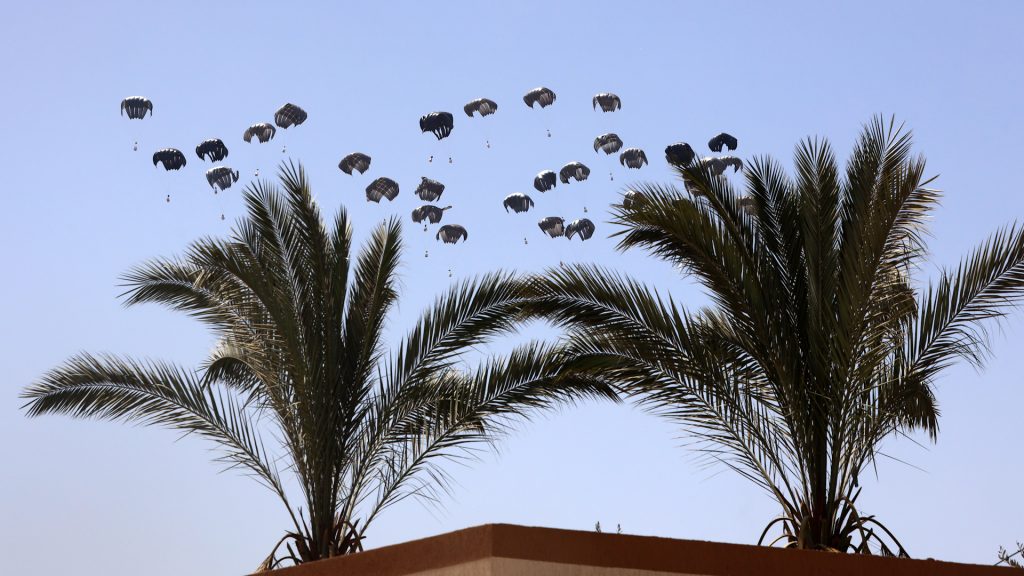Israel sanctions foreign airdrops of Gaza aid as child malnutrition worsens

Israel announced on Friday, July 25, that it will allow foreign governments to resume airdropping humanitarian aid into Gaza, according to a senior Israel Defense Forces official who spoke to Sky News. The move comes as conditions worsen in the enclave, where ongoing conflict with Hamas and logistical challenges continue to constrain aid deliveries.
The World Central Kitchen (WCK) restarted operations in Gaza on Friday afternoon. WCK had previously halted activity in the territory after an Israeli airstrike killed several of its staff in 2024. Other organizations, including the Gaza Humanitarian Foundation (GHF), have been distributing aid since Israel eased an 11-week blockade in late May. Hundreds of Palestinians have reportedly been killed or injured while trying to get aid near these GHF sites.
How severe is the food crisis in Gaza?
United Nations officials and humanitarian groups report widespread hunger in Gaza, with severe malnutrition especially affecting children. Gaza’s Hamas-run health ministry said on July 25 that nine people died from malnutrition in the past 24 hours, bringing the reported total to 122 deaths, including 83 children, since the war began.
The U.N. children’s agency UNICEF treated 5,000 children with acute malnutrition in the first half of July. However, the U.N. now warns that Gaza is running out of the specialized therapeutic food needed to treat these cases.
Has airdropping aid into Gaza worked before?
Airdrops have been used previously, with countries such as Jordan, the United States and the United Kingdom delivering aid from military aircraft in 2024. However, humanitarian agencies have cautioned that these efforts were insufficient and sometimes dangerous.
In March 2024, five people died after a parachute malfunctioned and dropped a heavy parcel onto civilians. There have also been reports of people drowning while attempting to retrieve supplies that landed in the sea.
What are the allegations around aid diversion?
Israel maintains that Hamas has diverted humanitarian aid for its own use, citing intelligence that militants have embedded on trucks and seized supplies for resale or to supply fighters with. Israel says up to 25% of the aid has been diverted and that GHF’s distribution model, using a U.S. contractor and armed private security, has helped curb this issue.
Hamas denies these claims. A Hamas official said Israel has killed more than 800 of its security personnel while they escorted aid convoys coordinated with the U.N.
What does the USAID analysis say about Hamas and aid theft?
An internal government review by the U.S. Agency for International Development’s Bureau for Humanitarian Assistance found no evidence that Hamas systematically stole U.S.-funded aid between October 2023 and May 2025, according to Reuters. The review analyzed 156 theft or loss incidents and found none directly linked to Hamas. Of those, 44 incidents were attributed to direct or indirect Israeli military action.
The State Department disputed the findings, citing unverified video evidence, while a White House spokesperson questioned the legitimacy of the analysis. Humanitarian organizations must report aid losses as a condition of receiving U.S. funding.





